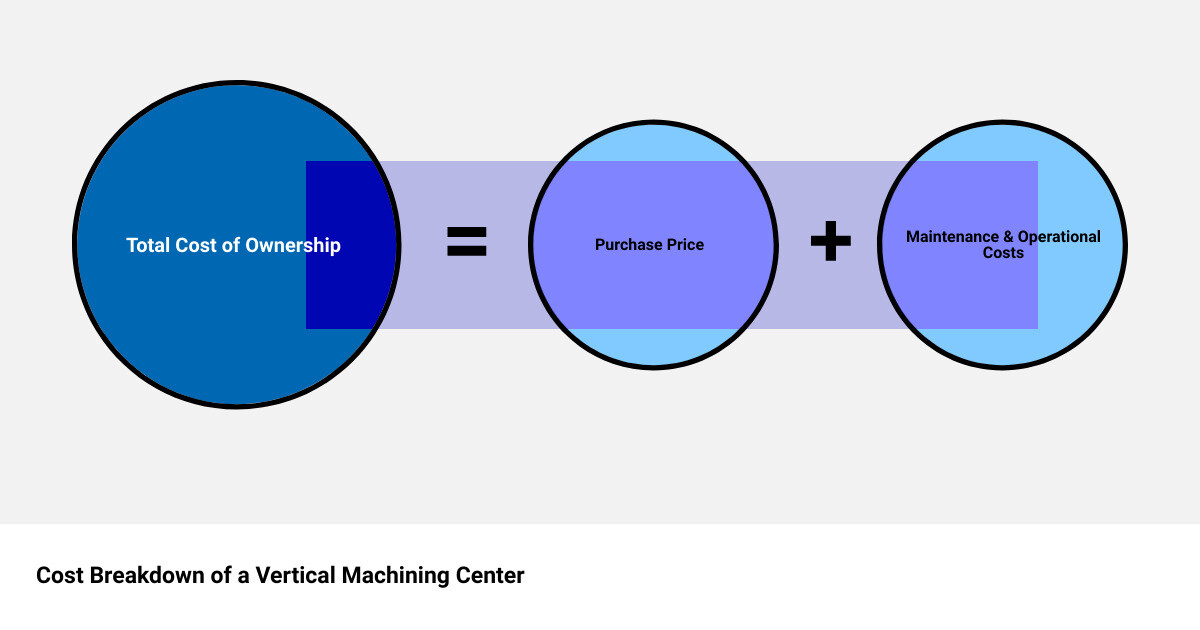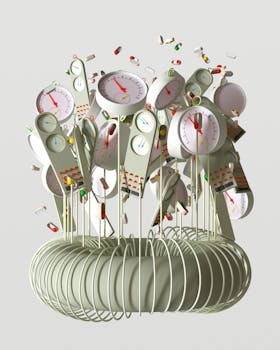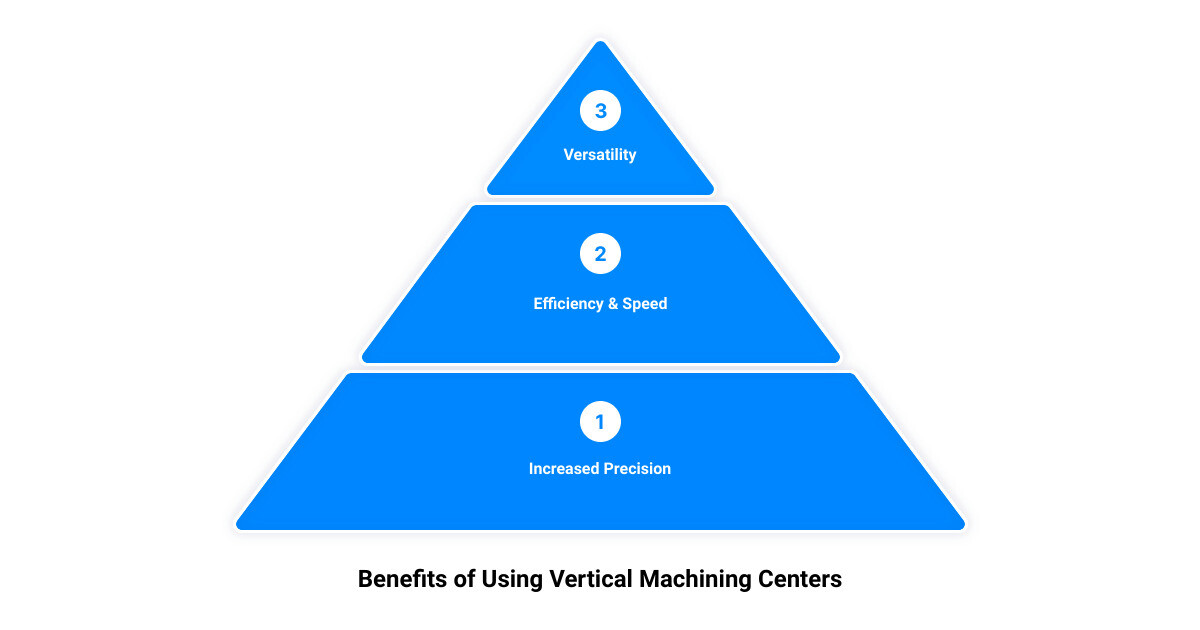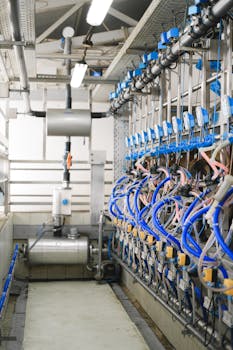Introduction to Vertical Machining Centers
Step into the world of precision, efficiency, and innovation with vertical machining centers (VMCs). A cornerstone of modern manufacturing, these machine shop staples are transforming industries one cut at a time. As a manufacturing company constantly seeking to improve the accuracy and longevity of your machinery, understanding the capabilities of vertical machining centers is crucial.
VMCs are milling machines with vertically oriented spindles that approach workpieces from above. They are typically used to perform 2.5- or 3-axis machining operations. With the ability to work with a variety of materials, from aluminum and stainless steel to brass and titanium, VMCs offer unparalleled versatility in the manufacturing process.
The appeal of vertical machining centers extends beyond their operational capabilities. They are generally less costly than their horizontal counterparts, making them an attractive option for both small job shops and larger machining operations. Despite their cost-effectiveness, VMCs do not compromise on performance. They leverage advanced technologies such as high-speed spindles and CNC capabilities to deliver high-quality results.
In the dynamic landscape of manufacturing, the role of vertical machining centers is continually evolving. As we delve deeper into this topic, we will unravel the intricacies of these machines, their impact on various industries, and what makes TMC Technologies’ new vertical machining center a game-changer in the field. Stay tuned to discover how vertical machining centers are setting new benchmarks in precision, efficiency, and innovation.
Understanding the Basics of a New Vertical Machining Center
Welcome to the heart of the machining world – the Vertical Machining Center (VMC). In simple terms, VMCs are the very backbone of any machining shop, playing a crucial role in shaping, cutting, and finishing materials to the required specifications. Let’s delve into the purpose and cost associated with these essential machining tools.
The Purpose of a Vertical Machining Center
A Vertical Machining Center, as the name suggests, is a machine that performs operations vertically, with the spindle positioned perpendicularly to the workholding surface. The spindle approaches the workpiece mounted on its table from above, performing either 2.5- or 3-axis machining operations. This orientation allows for highly precise and efficient cutting of components from various material stocks.
In a VMC, the X-axis controls left-and-right movement, the Y-axis handles front-and-back movement, while the Z-axis manages the up-and-down motion. This tri-axial control allows for a broad spectrum of operations and manipulations, making VMCs an incredibly versatile tool in the machining world.
The VMCs at TMC Technologies are designed to produce complex components with exacting tolerances, capable of fabricating parts from a variety of materials such as aluminum, stainless steel, brass, and titanium. Their advanced CNC capabilities ensure that the components for your project are created precisely and consistently with excellent quality.

The Cost of a Vertical Machining Center
When it comes to the price tag, Vertical Machining Centers are generally less costly than their Horizontal Machining Center (HMC) counterparts. This cost-effectiveness makes them an attractive option for both small job shops and larger machining operations.
However, the exact cost of a VMC can vary significantly, depending on several factors such as the machine’s capabilities, size, brand, and additional features like advanced CNC capabilities and ancillary equipment. These may include spindle speeders, angle heads, tool- and part-probes, quick-change workholding devices, and rotary indexers to enable four- or five-axis machining work.
At TMC Technologies, we understand that every project is unique, and we strive to offer competitive prices while never compromising on the quality and precision of our services. Our team is here to guide you through the process, ensuring you get the right machining solution that fits your budget and meets your project requirements.
Thus, understanding the basics of a Vertical Machining Center – its purpose and cost, is the first step in navigating the world of CNC machining. Armed with this knowledge, you’ll be better equipped to make informed decisions about your machining needs.

The Future of CNC Machining and Vertical Machining Centers
As we move forward, the future of CNC machining and Vertical Machining Centers (VMCs) looks bright with the advent of high-precision machine tools and advanced sensors and control systems. These technological advancements are setting the stage for unprecedented levels of precision, efficiency, and productivity in the machining industry.
The Role of High-Precision Machine Tools in CNC Machining
High-precision machine tools are the heart and soul of the CNC machining process. With the ability to fabricate parts from a variety of materials such as aluminum, stainless steel, brass, and titanium with exacting tolerances, these machines add a new dimension of accuracy and speed to manufacturing processes. At TMC Technologies, our CNC Horizontal Machining Centers are designed to produce complex components with exacting tolerances, ensuring that your parts are created accurately and consistently with the highest quality.
The precision and speed of these machines not only improve the quality of the output but also increase productivity by reducing the time taken to produce each part. This is especially beneficial in industries where time is of the essence, such as the automotive and aerospace sectors. As technology continues to evolve, we can only expect these high-precision machine tools to become more efficient and accurate, further revolutionizing the world of CNC machining.
The Impact of Advanced Sensors and Control Systems
In addition to high-precision machine tools, advanced sensors and control systems play a crucial role in the future of CNC machining and VMCs. These systems are responsible for controlling the movement and operation of the machine tools, ensuring that they function optimally and produce the desired output.
For instance, advanced sensors can detect minute variations in the machining process, enabling the control system to adjust the operation of the machine tools in real-time. This results in a higher level of precision and accuracy, even when machining complex parts. Moreover, advanced control systems can utilize CNC programming to control machine tools along multiple axes simultaneously, allowing for efficient and precise cutting of components from material stock.
At TMC Technologies, we leverage advanced CNC capabilities, including conversational control programming, to ensure the flexibility and capability of our VMCs. Our machines are regularly calibrated for accuracy, and we use cutting-edge technology to guarantee consistent results for every project.
As we step into the future, the role of advanced sensors and control systems in CNC machining and VMCs will only continue to grow. They will not only make the machining process more efficient and accurate but also make it more adaptable to the evolving needs of various industries. This continuous innovation is what keeps CNC machining and VMCs at the forefront of the manufacturing industry, and we at TMC Technologies are proud to be part of this exciting journey.
The Advantages and Disadvantages of Vertical Machining Centers
The world of manufacturing is a complex one, where the right choice of machinery can make a significant difference in efficiency, precision, and cost-effectiveness. When it comes to CNC machining, Vertical Machining Centers (VMCs) have become an integral part of the manufacturing landscape. Let’s delve into both the benefits and potential challenges of using these powerful machines.

The Benefits of Using Vertical Machining Centers
One of the primary benefits of a Vertical Machining Center is its cost-effectiveness. Compared to their horizontal counterparts, VMCs are generally less expensive, making them an attractive choice for both small and large scale manufacturing operations. This is particularly advantageous for small job shops, where budget constraints can limit the investment in machinery.
Vertical Machining Centers also offer a high degree of flexibility, with the ability to perform a wide range of operations. They can handle 2.5- or 3-axis machining tasks, making them suitable for a variety of applications. From basic drilling and milling to more complex contouring, VMCs can do it all.
Another significant advantage of VMCs is their adaptability. Over the years, the performance of these machines has drastically improved, thanks to advancements in technology such as high-speed spindles and advanced CNC capabilities, including conversational control programming. This means that VMCs can be easily adapted to meet the evolving needs of various industries.
The Major Disadvantage of Vertical Spindle Machining Centers
Despite the numerous benefits, one significant drawback of Vertical Spindle Machining Centers is their limited capability when it comes to large and heavy workpieces. The vertical orientation of the spindle means the workpiece’s weight is supported solely by the machine table. This can limit the size and weight of the workpiece that can be handled efficiently by a VMC.
In contrast, Horizontal Machining Centers (HMCs) can handle larger and heavier workpieces more effectively, as the weight of the workpiece is distributed across a wider surface area. This makes HMCs a more suitable choice for certain applications, particularly when dealing with larger and more cumbersome workpieces.
In conclusion, while Vertical Machining Centers offer numerous benefits, including cost-effectiveness, flexibility, and adaptability, these must be weighed against their limitations. Understanding these factors can help make an informed decision when choosing the right CNC machine for your manufacturing needs.
The Role of Vertical Machining Centers in Various Industries
Vertical Machining Centers (VMCs) have revolutionized various industries, from automotive to aerospace. These industries have recognized the value that these machines bring with their efficiency, precision, and flexibility. Let’s delve into how these industries are utilizing VMCs to their advantage.
The Use of Vertical Machining Centers in the Automotive Industry
The automotive industry has always been at the forefront of adopting innovative manufacturing technologies, and the use of Vertical Machining Centers is no exception. In an industry where precision and efficiency are key, the capabilities of VMCs have proven indispensable.
VMCs are used to create a variety of automotive parts like engine components, vehicle frames, and various other complex parts. The ability of these machines to perform numerous machining operations like milling, drilling, and tapping in a single setup reduces production time and increases efficiency. Furthermore, the advanced CNC capabilities of these machines allow for high-speed machining, which is critical in the fast-paced automotive industry.
The Use of Vertical Machining Centers in the Aerospace Industry
The aerospace industry, much like the automotive industry, demands high precision and quality in its components. The stakes in aerospace manufacturing are high, as even the smallest error can have catastrophic consequences. This is where Vertical Machining Centers shine.
In the aerospace industry, VMCs are used to manufacture parts like turbine blades, airframe structures, and other intricate parts. These parts often require complex geometries and precise tolerances, which are achievable with the advanced capabilities of VMCs. Furthermore, the ability of these machines to handle a variety of materials, including the tough-to-machine alloys commonly used in aerospace applications, makes them an invaluable tool.
In both of these industries, the introduction of Vertical Machining Centers by companies like TMC Technologies has brought about significant improvements in productivity, precision, and efficiency. With the continual advancements in machining technology, the role of VMCs in these industries is set to increase even further, pushing the boundaries of what is possible in manufacturing.

TMC Technologies and Their New Vertical Machining Center
As the manufacturing industry continually evolves, so does the need for innovative machining solutions. TMC Technologies, a frontrunner in the machining industry, has proven to be a reliable partner for many businesses with their new vertical machining center. This section aims to highlight the unique selling proposition of TMC Technologies, the high-quality CNC lathe parts they provide, and the additional machining services they offer.
The Unique Selling Proposition of TMC Technologies
What sets TMC Technologies apart from other machining service providers is their commitment to precision and quality. Their new vertical machining center is designed to deliver high-quality parts with exacting tolerances, thanks to its advanced CNC programming that controls machine tools along multiple axes simultaneously. This means that the machine can produce intricate parts quickly and accurately, providing an efficient solution for your manufacturing needs.
Moreover, TMC Technologies’ vertical machining center comes with advanced features such as temperature stability through integral cooling, user-friendly CNC controls, and on-board probing for part location and feature inspection within the cutting cycle. These features not only simplify the machining process but also increase productivity.
The High-Quality CNC Lathe Parts Provided by TMC Technologies
TMC Technologies is no stranger to producing top-tier quality components. Their CNC lathe parts, fabricated using the new vertical machining center, are characterized by their exceptional precision and consistency. The machine’s 3-, 4-, and 5-axis capabilities enable it to process diverse part shapes, offering infinite possibilities for your manufacturing projects.
The company’s stringent quality control standards ensure that every part created meets their high standards of precision manufacturing. Whether you need parts for small or large part machining in a low- or high-volume production environment, you can rely on TMC Technologies for consistent, high-quality results.
The Additional Machining Services Offered by TMC Technologies
Beyond providing high-quality CNC lathe parts, TMC Technologies also offers a wide range of additional machining services. This includes design & CAD services, fabrication & assembly, and supply chain management. Their CNC machinery is able to handle multiple projects at one time and can accommodate both small-scale and large-scale orders.
With their comprehensive machining solutions, TMC Technologies aims to be your one-stop-shop for all your machining needs, offering competitive prices, fast turnaround times, and outstanding customer service.
By choosing TMC Technologies, you’re not just investing in a new vertical machining center, but also partnering with a company committed to driving innovation in the CNC machining industry. Through their high-quality CNC lathe parts and additional machining services, they deliver solutions tailored to your specific manufacturing needs.
Conclusion: The Innovation and Future of New Vertical Machining Centers
In the fast-paced world of manufacturing, innovation is the name of the game. The introduction of new vertical machining centers by TMC Technologies is a testament to this relentless pursuit of advancement. These machines are not only designed to deliver precision and efficiency but also to support the future of Computer Numerical Control (CNC) machining.
One key aspect of TMC Technologies’ new vertical machining centers is their adaptability. These machines are designed for various applications, allowing them to handle projects of any scale, from small-batch jobs to high-volume production. Such versatility is invaluable in an industry where manufacturing needs are constantly evolving.
Moreover, TMC Technologies’ commitment to quality control is unrivaled. Their rigorous quality assurance process, coupled with regular calibration of machines, ensures consistent and reliable results. This dedication to quality is a significant factor in the longevity and accuracy of the machinery, a pain point for many in the manufacturing industry.
In the realm of CNC machining, the integration of advanced technology is crucial. TMC Technologies stays ahead of the curve by harnessing the potential of digital solutions and smart technology in their new vertical machining centers. This includes the use of advanced sensors and control systems for enhanced precision and automation capabilities.
The future of CNC machining is looking brighter with each innovation, and the new vertical machining centers by TMC Technologies are paving the way. They are not just machines but solutions, addressing the industry’s pain points and pushing the boundaries of what is possible in manufacturing.
As we look towards the future, the innovation and advancement of new vertical machining centers will undoubtedly play a significant role. By focusing on precision, versatility, quality control, and the integration of advanced technology, TMC Technologies is not only meeting the demands of today but is also preparing for the challenges of tomorrow.
In conclusion, TMC Technologies’ new vertical machining centers represent a significant leap forward in the CNC machining industry. By providing high-quality, innovative solutions, they are setting new standards in manufacturing efficiency and precision. Their commitment to quality and innovation makes them an outstanding choice for any manufacturing company in need of top-tier CNC lathe parts and machining services.
